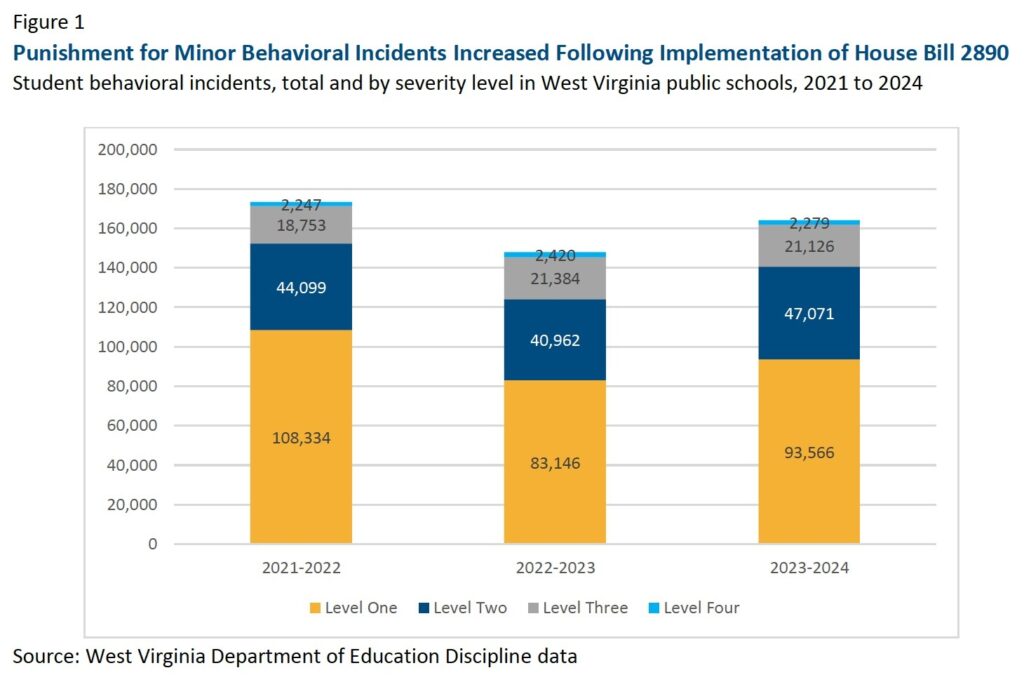Read the full fact sheet.
In 2022, more than eight in ten schools surveyed nationwide reported increased behavioral and socioemotional challenges in their students following the COVID-19 pandemic. In response to behavioral issues and classroom disruptions, there has been a trend toward stricter student discipline policies in recent years across the country, including in West Virginia. These policies fail to address student misbehavior, increase the likelihood of poorer long-term outcomes for students, and contribute to disparities across student groups. To address the needs of students and reduce behavioral issues, policymakers need to prioritize upstream investments in student wellness and success through staffing of counselors, social workers, psychologists, and teachers. School districts across our state are currently operating far below recommended ratios for these essential positions—in large part due to an outdated school funding formula that does not allocate adequate funding for the requisite ratio of professional school support positions to ensure students have the resources they need. Prevention-based and restorative practices have been shown to reduce behavioral issues among students while improving short- and long-term student outcomes. The impact of this approach was evidenced by the ESSER-funded investments into student support, which are expected to yield nearly $1.4 billion in student lifetime earnings.
Read the full fact sheet.
